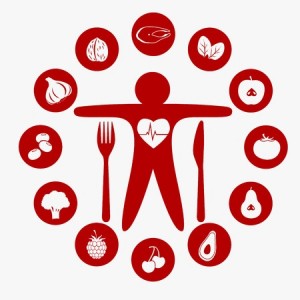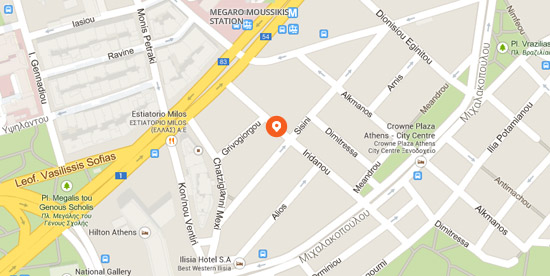How metabolism works
Metabolism is the sum of chemical and physical changes that allow our body to function properly and develop. Metabolism may slow down but this is rare and it is usually not the cause of an increase in our body weight. Metabolism determines the aggregate sum of our needs in energy and consists of:
 A. Basic metabolism (BM), that is the necessary energy for basic functions like breathing. It accounts for 45-75% of our total needs and varies according to the following:
A. Basic metabolism (BM), that is the necessary energy for basic functions like breathing. It accounts for 45-75% of our total needs and varies according to the following:
- Body size: More than 50% of BM is determined by body size. People with bigger bodies have bigger needs. So it is likely that if you have a bigger body you need more energy.
- Body composition: Muscles consume more energy relative to fat, hence people with more muscle and less fat have greater energy needs. Fat in people with Body Mass Index below 30kg/m2 determines 3%-5% of BM although it accounts for 20%-30% of weight.
- Gender: Women naturally have more fat and less muscles and as a result their BM is 5-10% smaller relative to men of the same height and age.
- Age: BM increases during periods of growth, like for example the first two years of life. By the end of the third decade of life muscles usually decrease and fat increases, this is why the BM decreases as we grow older. Exercise may help you maintain or increase your muscles and respectively maintain or increase your needs even as you get older. In addition, a limited reduction in the food intake helps prevent a possible weight increase.
- Genes: Studies have highlighted differentiations up to 10% in BM for people with similar characteristics.
- Hormones: Hormone levels may affect BM. Some cases in which it increases are hyperthyroidism, increased stress and pregnancy while cases where decrease is observed are hypothyroidism and menopause. Also BM varies according to the stage of the female cycle.
- Eating behaviour: Overconsumption of food raises the BM by 5-10% and reversely malnutrition reduces it. So when you are trying to lose weight the rate at which you lose it is gradually reduced.
- Other factors: Caffeine: Coffee consumption which contains 60-80mg of caffeine (ex. A Greek coffee) increases BM by 5-10% for the next 1-2 hours. Nicotine and alcohol also increase BM. However excessive consumption of those substances in order to lose weight is wrong and ineffective. In addition, fever increases BM by 13% for every degree Celsius over 37. Cold climate also increase BM.
Apart from BM metabolism also consists of:
B. Thermogenetic effect of food. (Energy consumed for digestion, absorption, carriage and storage of food.) Comprises about 10% of our total needs. It varies according to each food and is greater after the consumption of carbohydrates and protein rather than fat. Spicy foods increase the thermogenetic effect of food.
C. Exercise. Exercise significantly affects metabolism, which rises as physical activity increases and the opposite. It comprises of 20-40% of our needs in energy and is expressed as a multiple of BM.
D. Also during illness, inflammation, surgery or injury energy needs increase relative to each case.
Conclusively, it appears that metabolism varies for each person and is affected by more than one factor, many of which are not subject to our will. Although there are instances where metabolism slows down this is rare.
Changes in weight are due to an imbalance between food intake and exercise, in terms of total energy needs, which are determined by the above. The main reasons of weight increase is overconsumption of food, lack of exercise and certain medicines.
What you can do about this:
- Small and frequent meals (4-5/meals) help increase one’s metabolism and therefore lose or maintain weight because they increase the thermogenesis caused by the consumption of food.
- More exercise significantly increases metabolism. It should be noted that exhausting exercise or going to a gym is not necessary. Small changes like walking five times a week for 30 minutes each time is an excellent start.







